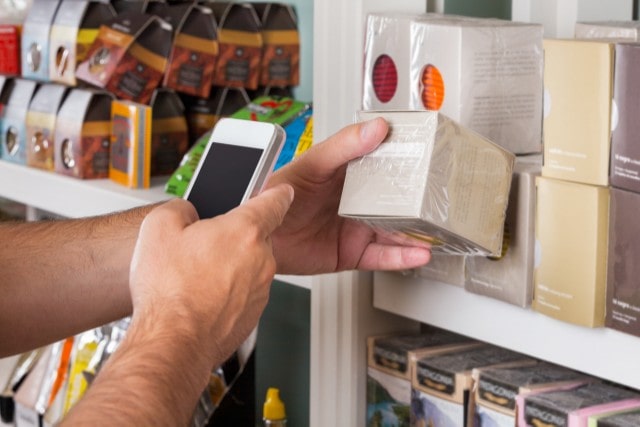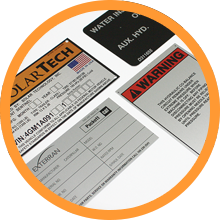How can businesses — and consumers — easily tell products apart? With billions of different products on the market, unique product identifiers (UPIs) are necessary to distinguish products. In fact, product identification is so helpful that it’s often mandatory in applications like manufacturing and healthcare.
While most consumers are familiar with UPC codes for retail or eCommerce, these identifiers can be used for any type of asset tracking. Learn what product identifiers are, the different types of UPIs, and why they’re so important for both consumers and brands.
What are Product Identifiers?
A product identifier is a unique series of digits used to identify a specific product, machine, shipment, or material. UPIs often use just numbers, but some identifiers will use both numbers and letters — the latter is more common with businesses that need to generate thousands of unique identifiers.
Product identifiers must be unique, and companies typically don’t recycle identifiers from assets that have been retired or disposed of, either. More often than not, manufacturers determine a product or machine’s product identifier, but in some cases, an organization like GS1 might create it.
Product identifiers are often tied to a part number, chemical formula, or the manufacturer’s name. You can usually find the product identifier below the product’s barcode or QR code.
Types of Product Identifiers
Product identifiers are a helpful way to differentiate products, but they’re far from uniform. You’ll need to understand the different types of product identifiers to determine which works best for your organization.
Brand Name
The easiest way to create a product identifier is by the manufacturer’s name. For example, some UPIs will start with the first three or four letters of the manufacturer’s name, followed by an alphanumeric code. This helps brands distinguish between different makes and models from the same manufacturer.
MPN
Manufacturer Part Numbers (MPNs) are provided by the manufacturer. This number tells you which manufacturer made a part and can even tell you which products the part is compatible with.
GTIN
Global Trade Item Numbers (GTINs) are unique numbers used for products in the retail or ecommerce space. They’re valuable because GTINs are an internationally-recognized number, which is perfect for multinational companies. Generally, GTINs are eight to 14 digits long, depending on how many products the retailer makes and how much space there is on the product for the code.
UPC
Universal Product Codes (UPCs) are also called GTIN-12 and are mostly used in North America. This is the code that many American consumers are likely already familiar with; it’s the code beneath the bar code on products you find in the grocery store.
EAN
European Article Number (EAN) is similar to the North American UPC, but it’s mostly used in Europe. It’s also called GTIN-13 because it’s one digit longer than GTIN-12.
ISBN
International Standard Book Number is a unique product identifier just for books that’s been in use since 1969. It’s on an international scale, too, so ISBN is more standardized than many product identifiers.
Why Do Product Identifiers Matter?
Product identifiers come in all shapes and sizes. They also have different uses across multiple industries. Whether they’re used in eCommerce, book sales, or manufacturer labeling, product identifiers have many benefits.
Meet eCommerce Requirements
If you’re selling products on an eCommerce platform like eBay or Amazon, you’re required to provide product identifiers. Without these codes, you won’t be able to list your products in an eCommerce store.
Connect with Shoppers
Product identifiers are helpful for boosting eCommerce sales because they ensure your customers buy the right product. This is especially helpful in the auto parts space where shoppers need to differentiate between similar-looking products.
Stay Safe
Product identifiers are used to identify hazardous waste and other dangerous materials. This is a legal requirement for manufacturers and industrial businesses, but it’s also a common-sense way to protect workers and everyone downstream in the supply chain. UPIs can also help manufacturers quickly determine where a chemical shipment came from and track how it routes through the supply chain.
Save Time
Product identifiers make it easy to distinguish products, parts, or shipments from each other with a simple scan. You can use tracking software to monitor this at scale, reducing hands-on management and the errors that come with it.
UPIs make it easy to share critical information about your products, too. Check batch information, manufacturing date and location, and other information with a simple scan. This can save your team a tremendous amount of time in the event of a recall.
Empower Your Team with Better Tracking Solutions
Product identifiers are popular in a variety of industries. They’re useful not only for selling goods online but also for streamlining your business and keeping your employees safe.
MPC creates labels and tags that can withstand the toughest conditions. Our heavy-duty industrial product identifier tags are perfect for industrial uses, hazardous waste, and parts labeling. Order a no-strings-attached sample to see the MPC difference firsthand.
Learn more about product identification: Read “101 Product Identification Tips From the Experts”



